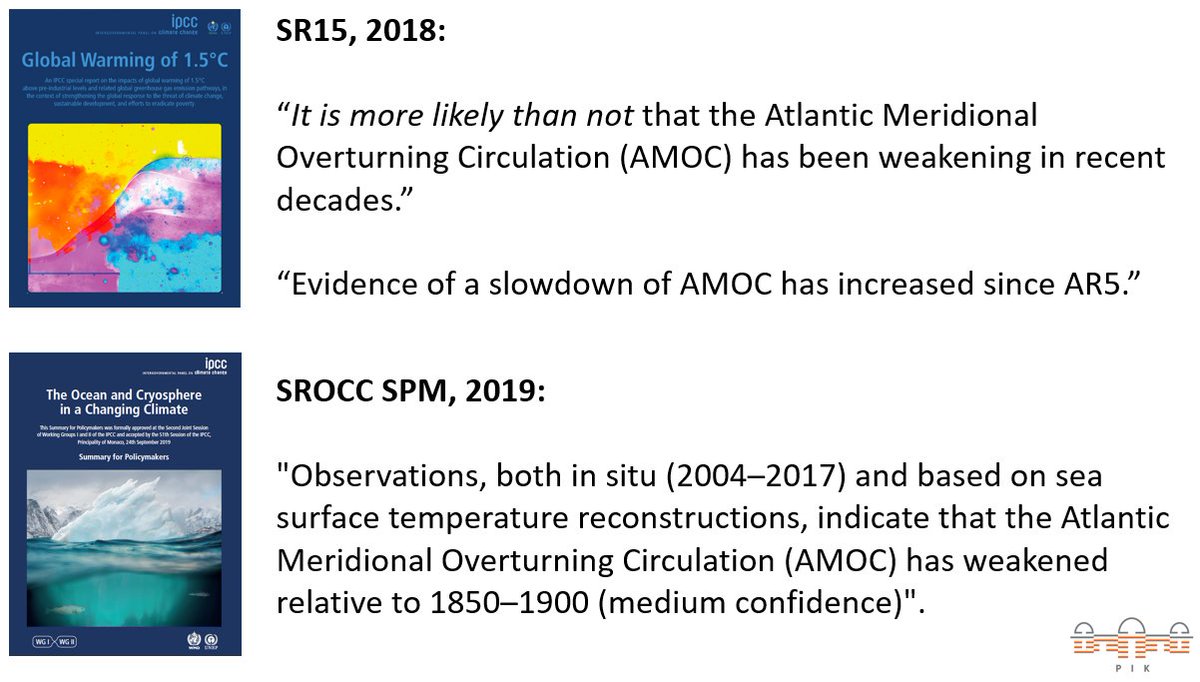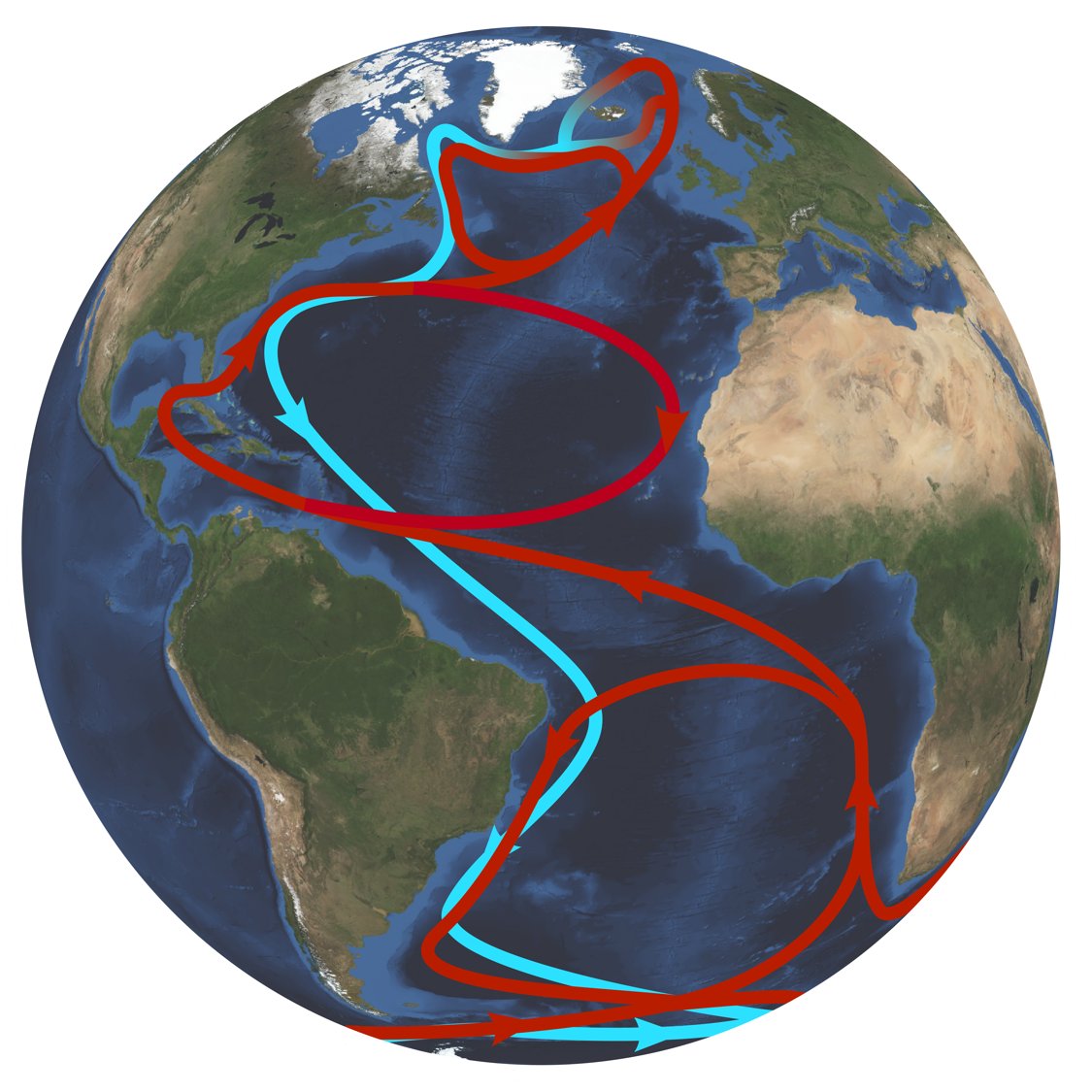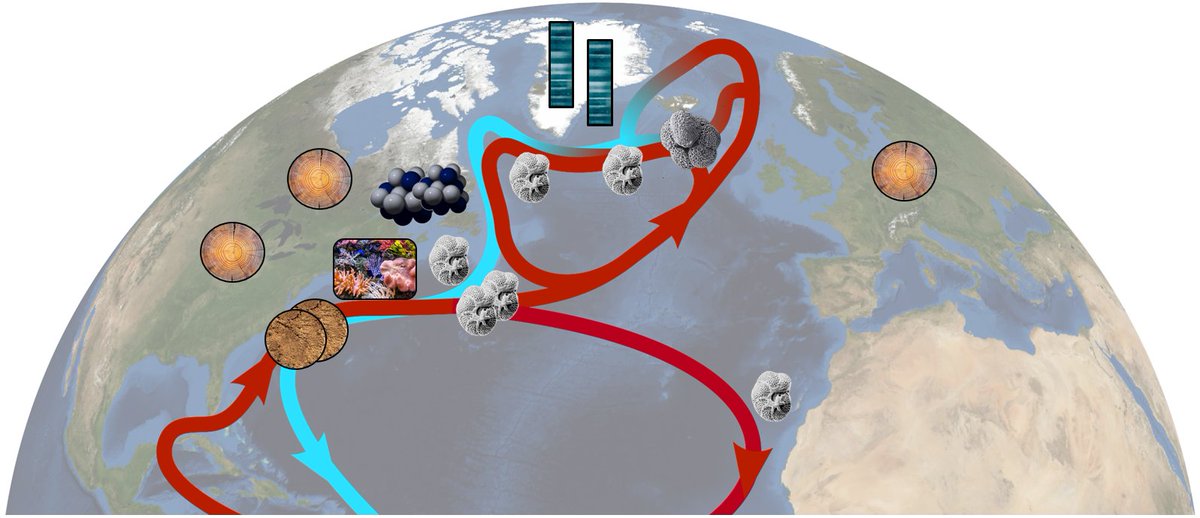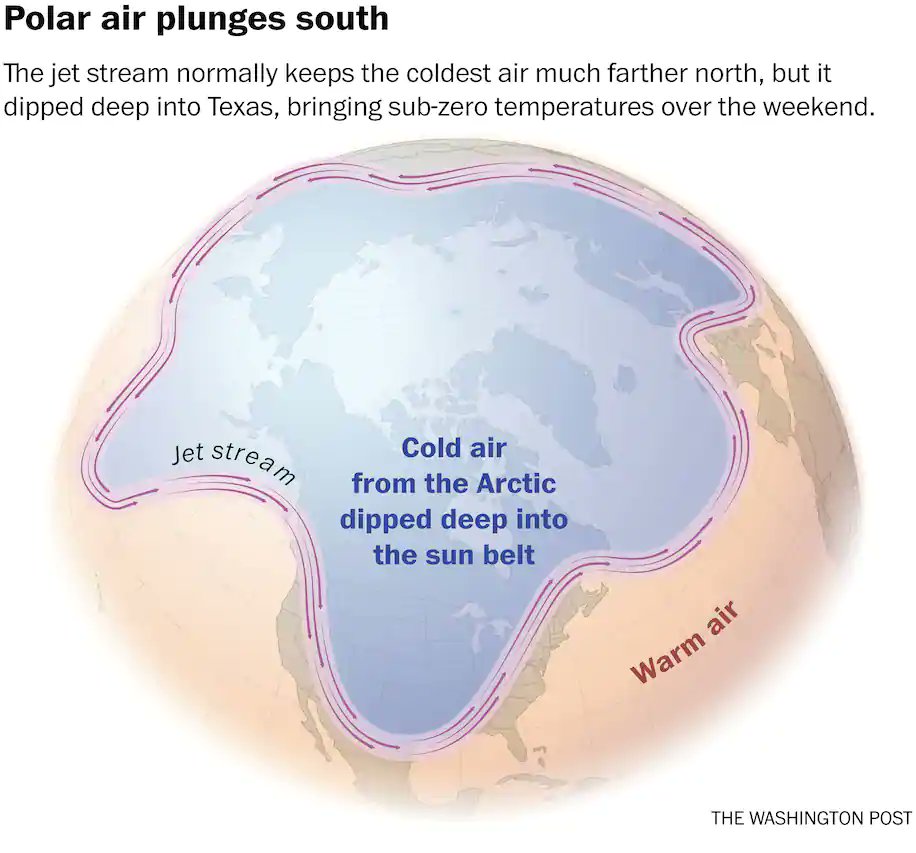
Why I think that the 'cold blob' in the North Atlantic cannot be explained by wind changes (a question raised in the @nytimes) - a thread. Keep in mind that we're talking about the long-term evolution, not short-term variability. @PdeMenocal nytimes.com/interactive/20…
1. Halldór Björnsson of the Icelandic weather service has shown that short-term temperature fluctuations correlate with the heat exchange through the sea surface, but that this does not explain the longer-term development of the ‘cold blob’ over decades. realclimate.org/index.php/arch…
2. What we observe is a specific cold/warm "fingerprint", which is highly specific for an AMOC slowdown. I haven't seen any study that can explain this by wind changes. The physics behind this is well-understood ocean dynamics (vorticity conservation). realclimate.org/index.php/arch… 

3. Climate model historic runs show a widely differing AMOC slowdown, and the 'cold blob' temperatures (x-axis) correlate strongly with AMOC slowdown (y-axis). (Caesar et al., Nature 2008.) This correlation is also found in the CMIP6 models. (Menary et al., GRL 2020.) 

4. In our new paper, of the 11 time series we show, only 5 have to do with temperature or heat content - 6 are completely independent confirmations of the AMOC weakening. Here's my popular thread on this paper again.
https://twitter.com/rahmstorf/status/1365186947497549825?s=20
5. At the end of the time series, since 2004, the trend we deduce from the 'cold blob' agrees well with the weakening trend measured by the RAPID project. Also the heat transport change related to the estimated weakening agrees with the observed cooling. (Cold blob image: NASA.) 

To sum up, we have a bunch of independent and consistent evidence pointing to an AMOC weakening. I have not seen any coherent alternative explanation of the 'cold blob' (long term!) in the literature. Let me know if I missed something. 

If you want to know more about the ocean's role in climate change, you're warmly invited to watch my recent video lecture!
• • •
Missing some Tweet in this thread? You can try to
force a refresh












